Top 10 Best Grains for Dogs - Full Guide
Top 10 Best Grains for Dogs - Full Guide
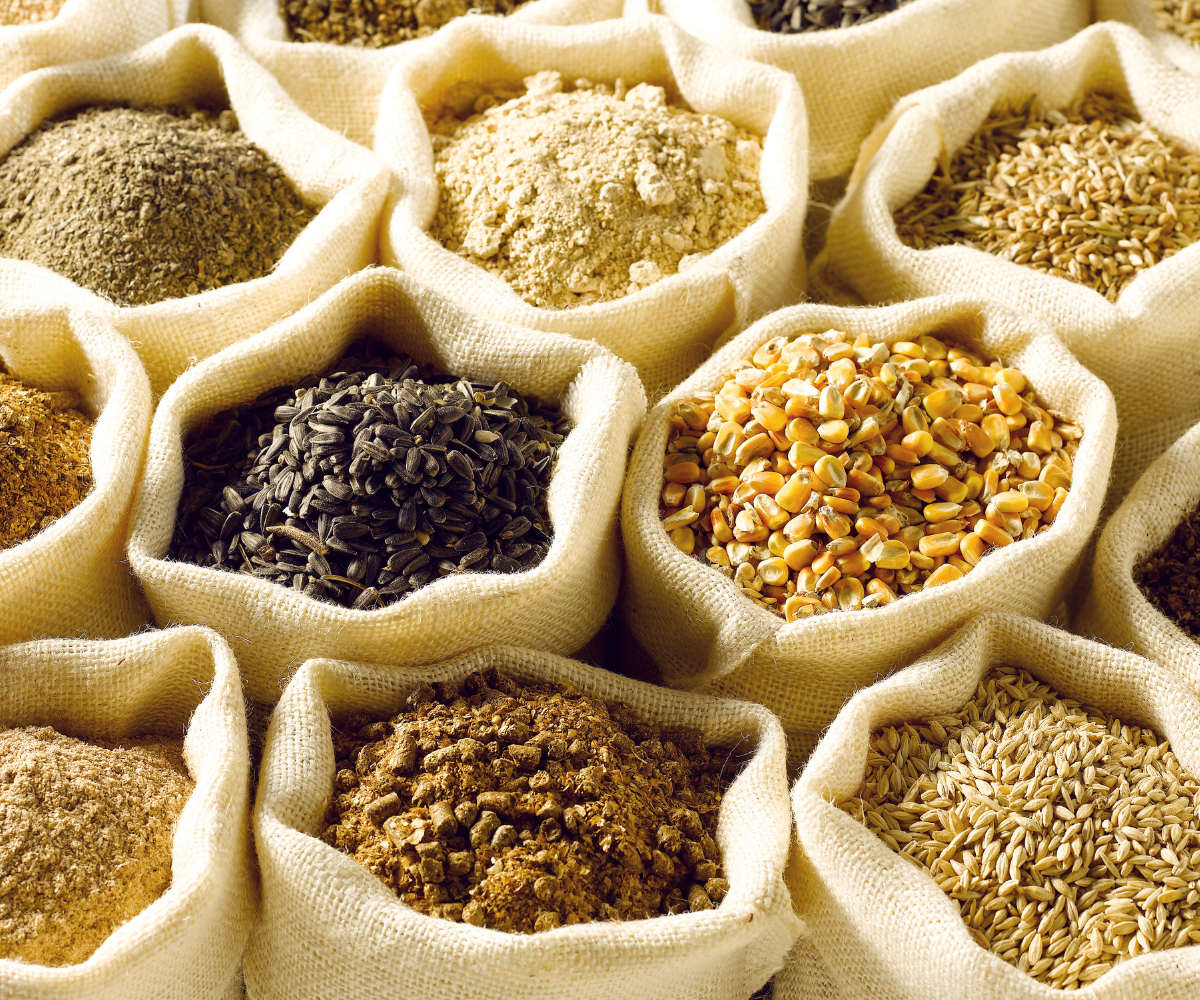
Vet Reviewed

By: Sarah Hodgson
March 7, 2024
- Posted in Dogs
Table of Contents
Grains are a common ingredient in many dog foods, providing essential nutrients and energy for our furry friends. However, not all grains are created equal, and some may be better than others for your dog's health. In this article, we will explore what grains are best for dogs and why.
Let's jump in!
Some grains, such as brown rice and oats, are highly digestible and provide a good source of energy for dogs. Others, such as corn and wheat, are less digestible and may cause digestive issues in some dogs. It's also important to consider the quality of the grain, as some grains may be contaminated with toxins or pesticides.
Do Dogs Need Grains In Their Diets?
Dogs are omnivores, which means they can eat both meat and plant-based foods. However, the debate about whether dogs need grains in their diets has been ongoing for years. Some people believe that dogs should only eat meat, while others argue that grains are an essential part of their diet.
Grains are a good source of carbohydrates, which provide energy for dogs. They also contain fiber, vitamins, and minerals that are important for dogs' overall health. However, not all grains are created equal, and some may be better for dogs than others.
While grains can be a healthy addition to your dog's diet, it's important to choose the right grains and feed them in moderation. Too many grains can lead to weight gain and other health issues, so it's important to consult with your veterinarian before making any changes to your dog's diet.
Types of Grains for Dogs
Whole Grains vs. Refined Grains
When it comes to grains, there are two main categories: whole grains and refined grains. Whole grains are grains that have not had their bran and germ removed during processing. These grains are considered healthier for dogs because they are higher in fiber and nutrients. Refined grains, on the other hand, have had their bran and germ removed, leaving only the endosperm. This process removes many of the nutrients and fiber, making refined grains less healthy for dogs.
Safe Grains for Dogs
There are several grains that are safe for dogs to eat in moderation. Brown rice is a popular grain choice for dogs because it is high in fiber and nutrients. Other safe grains for dogs include quinoa, barley, and oatmeal. These grains are all high in fiber and contain essential vitamins and minerals that dogs need to stay healthy.
Grain-Free Options
While grains are safe for most dogs to eat, some dogs may have allergies or sensitivities to certain grains. In these cases, grain-free options may be necessary. Grain-free dog foods use alternative sources of carbohydrates, such as sweet potatoes, peas, and lentils. It is important to note that not all grain-free dog foods are created equal, and some may not provide the same level of nutrition as traditional dog foods that contain grains.
10 Best Grains For Dogs
1. Whole Wheat
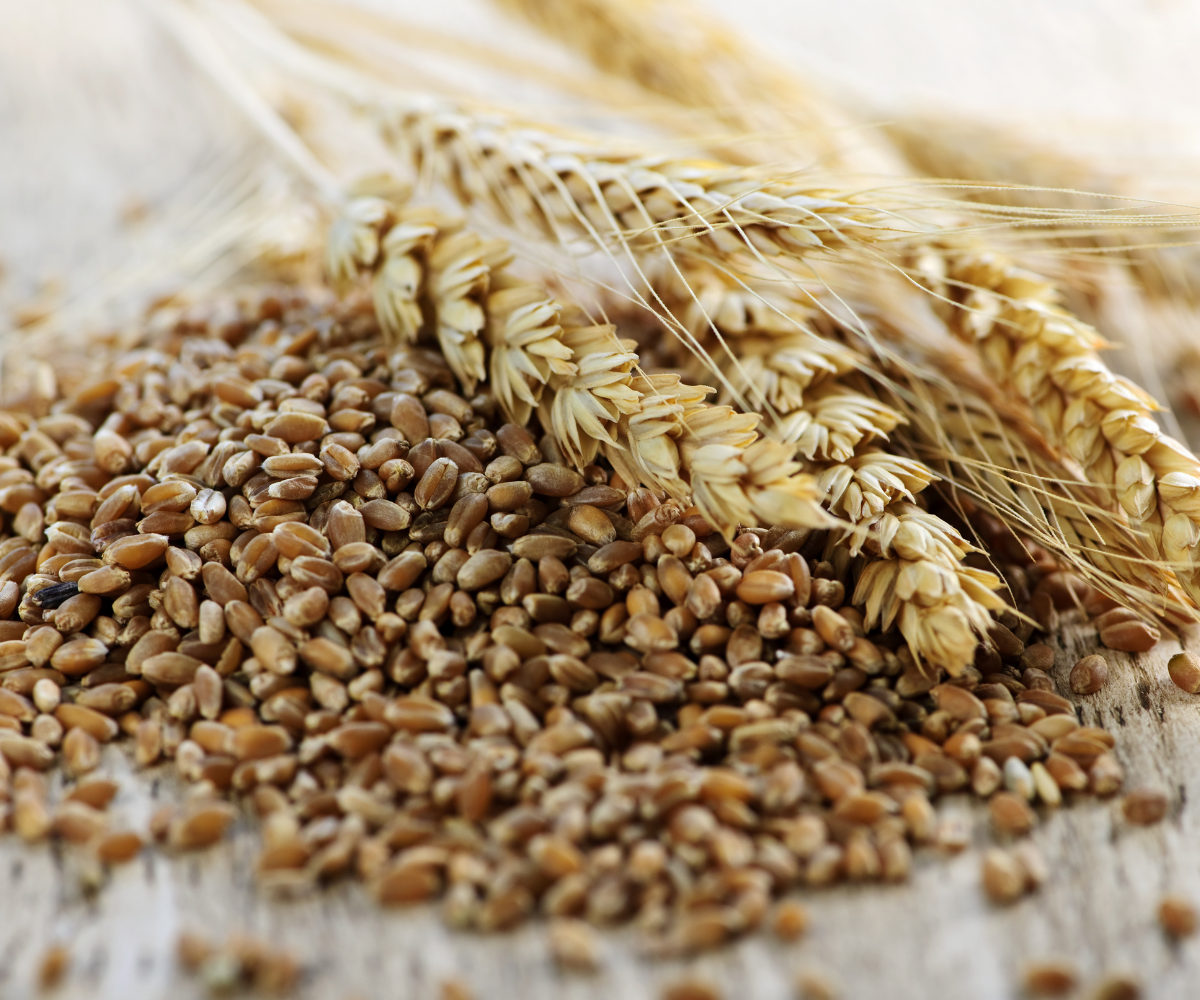
Whole wheat is a nutritious grain that can be beneficial for dogs when fed in moderation. It contains fiber, protein, and essential vitamins and minerals that can help support a healthy digestive system and overall well-being.
Whole wheat can be a great addition to a balanced diet for dogs, but it should not be the only source of grain in their diet. It is important to provide a variety of grains, as each grain has its own combination of nutrients that can benefit your dog's health.
It is also important to note that some dogs may have an allergy or sensitivity to wheat or other grains. If your dog experiences any adverse reactions after consuming wheat or other grains, it is important to consult with a veterinarian to determine the best course of action.
2. Brown Rice

Brown rice is a highly nutritious grain that is often recommended by veterinarians as a healthy addition to a dog's diet. Brown rice is a whole grain that contains the outer layer of the rice kernel, known as the bran. This outer layer is rich in fiber, which can help regulate digestion and promote bowel regularity in dogs.
In addition to fiber, brown rice is also rich in B vitamins, minerals, and antioxidants. These nutrients can help support a dog's immune system, promote healthy skin and coat, and support overall health.
3. Oats
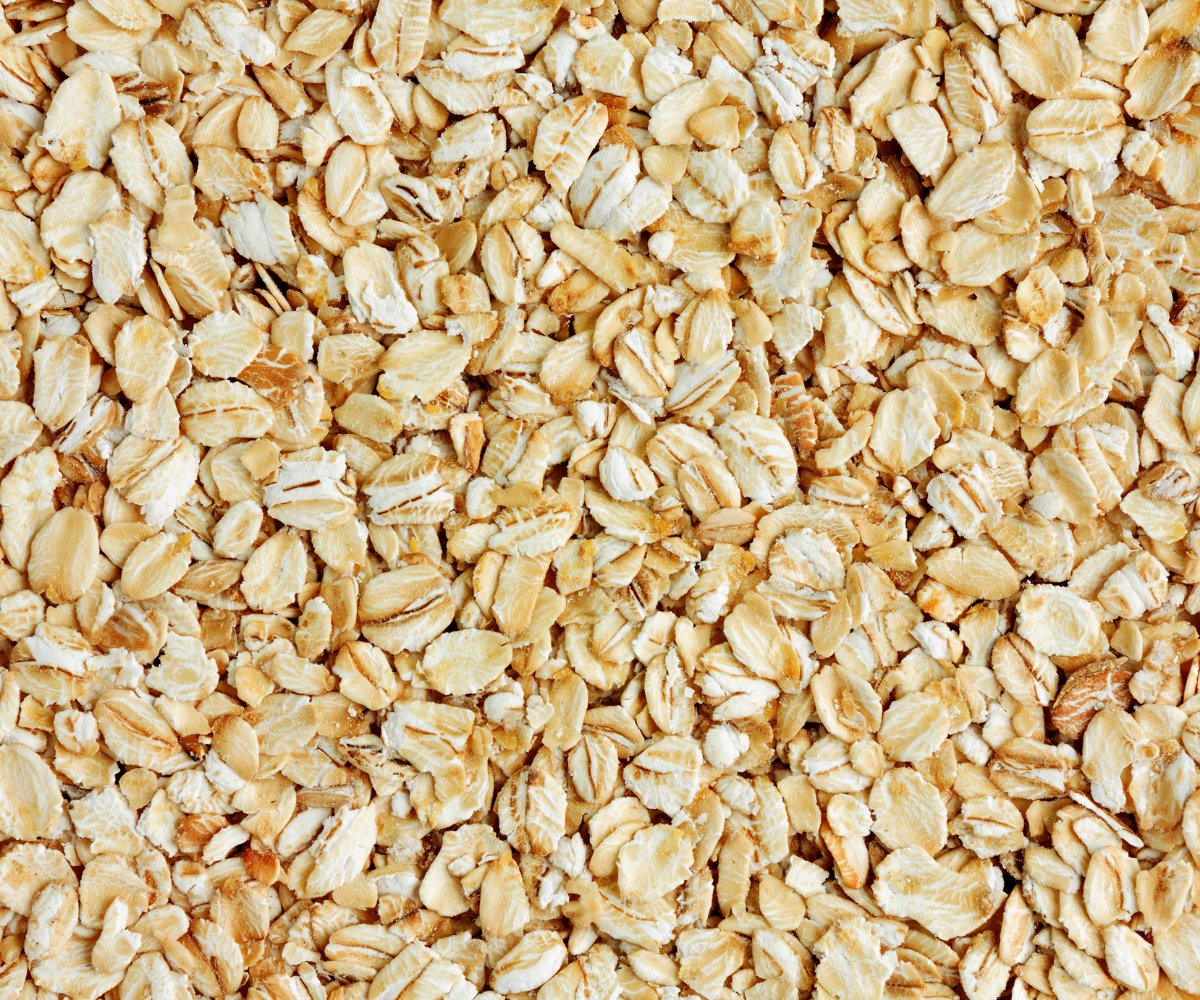
Oats are one of the most nutritious grains for both human and canine diets. They are high in protein and low in gluten, making them an excellent alternative for dogs that may be sensitive to wheat or grains. Oats are also rich in vitamins and minerals that support a healthy coat and skin.
One of the benefits of feeding oats to dogs is that they are a great source of soluble fiber, which can help regulate digestion and prevent constipation. Oats also contain beta-glucans, which have been shown to reduce cholesterol levels and boost the immune system.
4. Quinoa
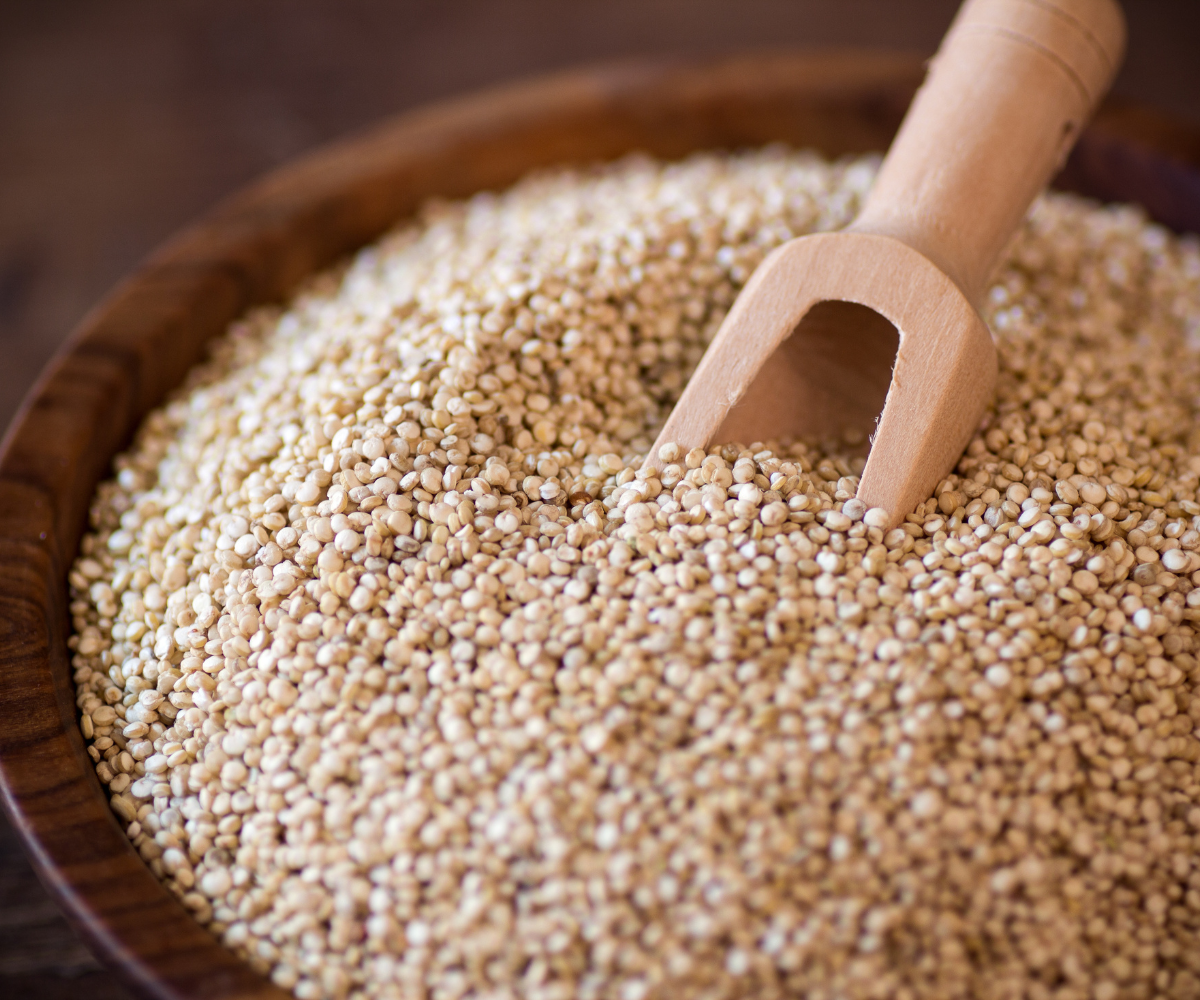
Quinoa is a seed that is often classified as a grain and is known for being a complete protein. It is high in fiber and packed with various vitamins and minerals, making it a healthy alternative to traditional grains.
Fortunately, quinoa is not toxic to dogs and is completely safe to feed to them. In fact, it is an ingredient in many high-quality dry dog foods that can be purchased from a pet store near you.
However, it is important to note that all grains should be served cooked and in moderation as part of a balanced diet. While quinoa is a healthy addition to a dog's diet, it should not be the sole source of their nutrition.
Here are some of the nutritional benefits of quinoa for dogs:
- High in protein: Quinoa is a complete protein, meaning it contains all nine essential amino acids that dogs need to thrive.
- Rich in fiber: Quinoa is high in fiber, which can help regulate digestion and prevent constipation in dogs.
- Packed with vitamins and minerals: Quinoa is rich in vitamins and minerals such as iron, magnesium, and calcium, which can help support a dog's overall health and well-being.
5. Buckwheat
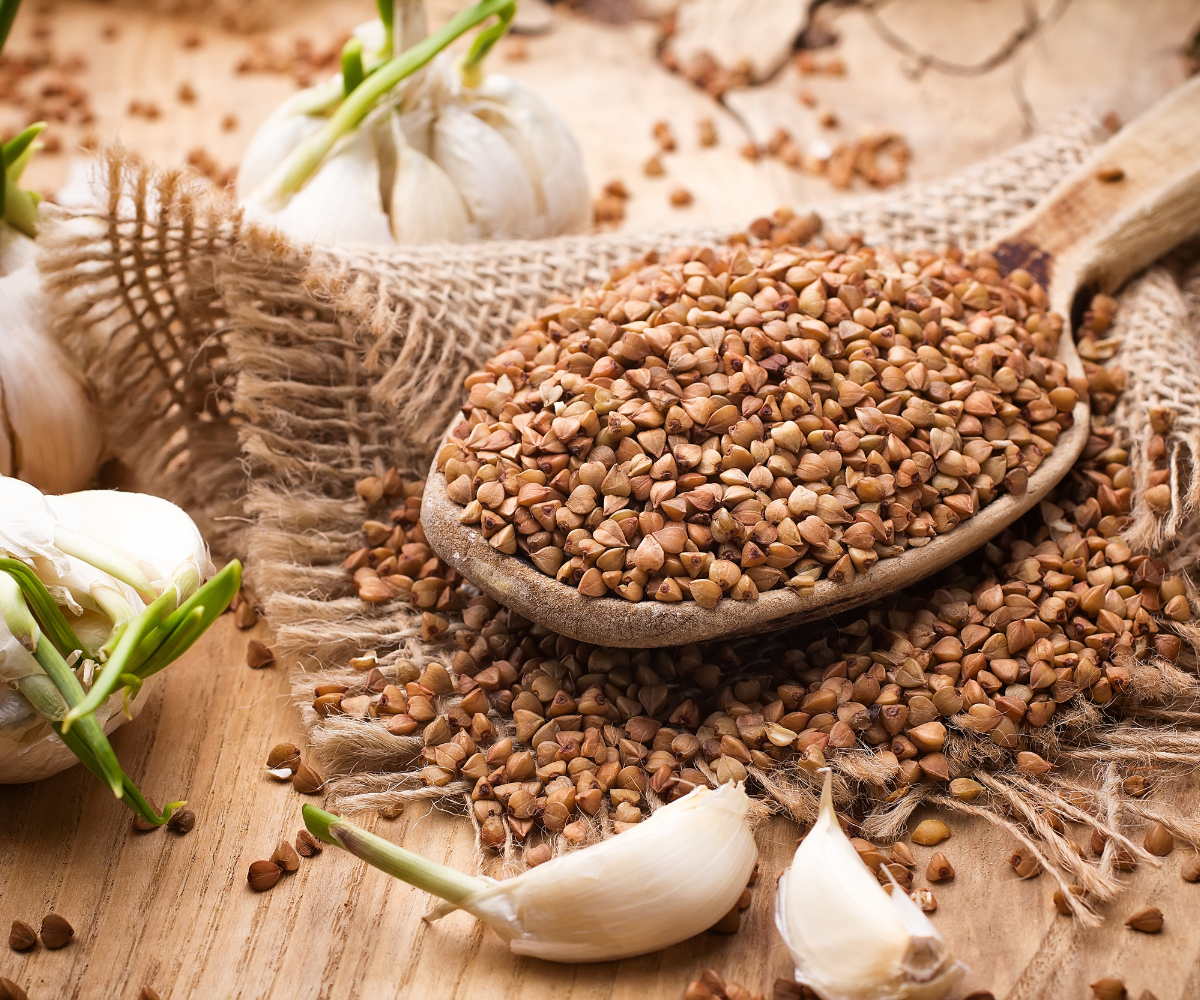
Buckwheat is a grain-free and gluten-free food that is becoming increasingly popular among dog owners. It is rich in complex carbohydrates, protein, and dietary fiber. Buckwheat is also a great source of vitamins B2, B3, B5, and B6, as well as magnesium, manganese, and other essential minerals.
Buckwheat is safe for dogs to eat in moderation. However, some dogs may be allergic to it, so it is important to introduce it gradually into their diet.
Here are some benefits of feeding buckwheat to your dog:
- Grain-free and gluten-free: Buckwheat is a great alternative to grains for dogs that have allergies or sensitivities to them.
- High in fiber: Buckwheat is rich in dietary fiber, which can help regulate your dog's digestive system and prevent constipation.
- Good source of protein: Buckwheat is a good source of protein, which is essential for building and repairing tissues in your dog's body.
- Rich in vitamins and minerals: Buckwheat is a great source of vitamins B2, B3, B5, and B6, as well as magnesium, manganese, and other essential minerals.
- Low glycemic index: Buckwheat has a low glycemic index, which means it can help regulate your dog's blood sugar levels and prevent spikes and crashes.
6. Millet
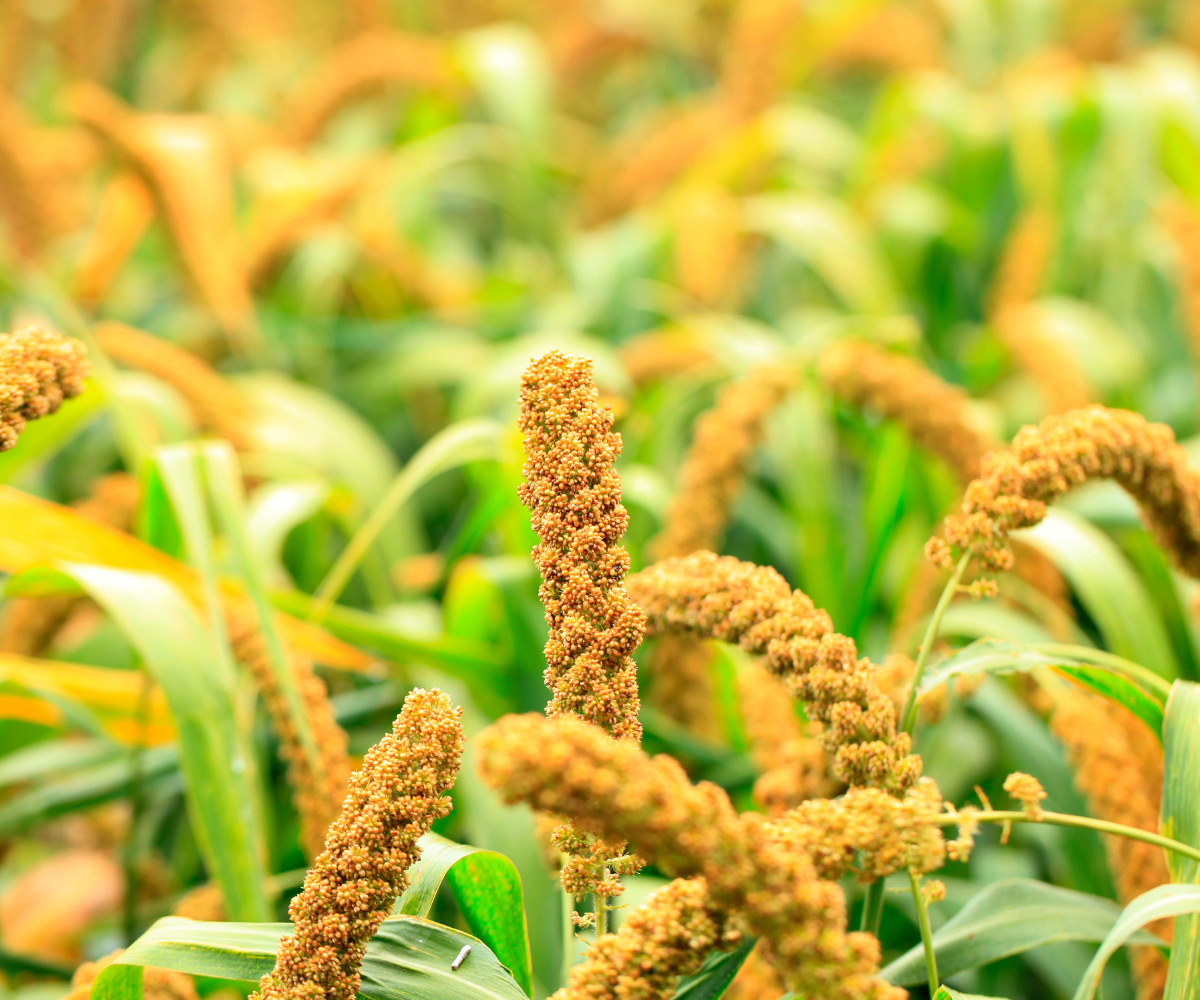
Millet is a gluten-free grain that is a great source of vitamin B, iron, phosphorus, and other essential minerals. This grain is an omnivore-appropriate dog food ingredient. It is also safe for dogs to eat and offers numerous health benefits.
Millet is a small, round seed that is used in wild bird food. It is an excellent source of protein and fiber, making it a great addition to your dog's diet. Millet is also low in fat, which makes it an ideal choice for dogs who need to lose weight.
One of the benefits of millet is that it is easy to digest. This makes it a great choice for dogs with sensitive stomachs. Millet is also a good source of antioxidants, which can help to boost your dog's immune system and protect against disease.
7. Amaranth
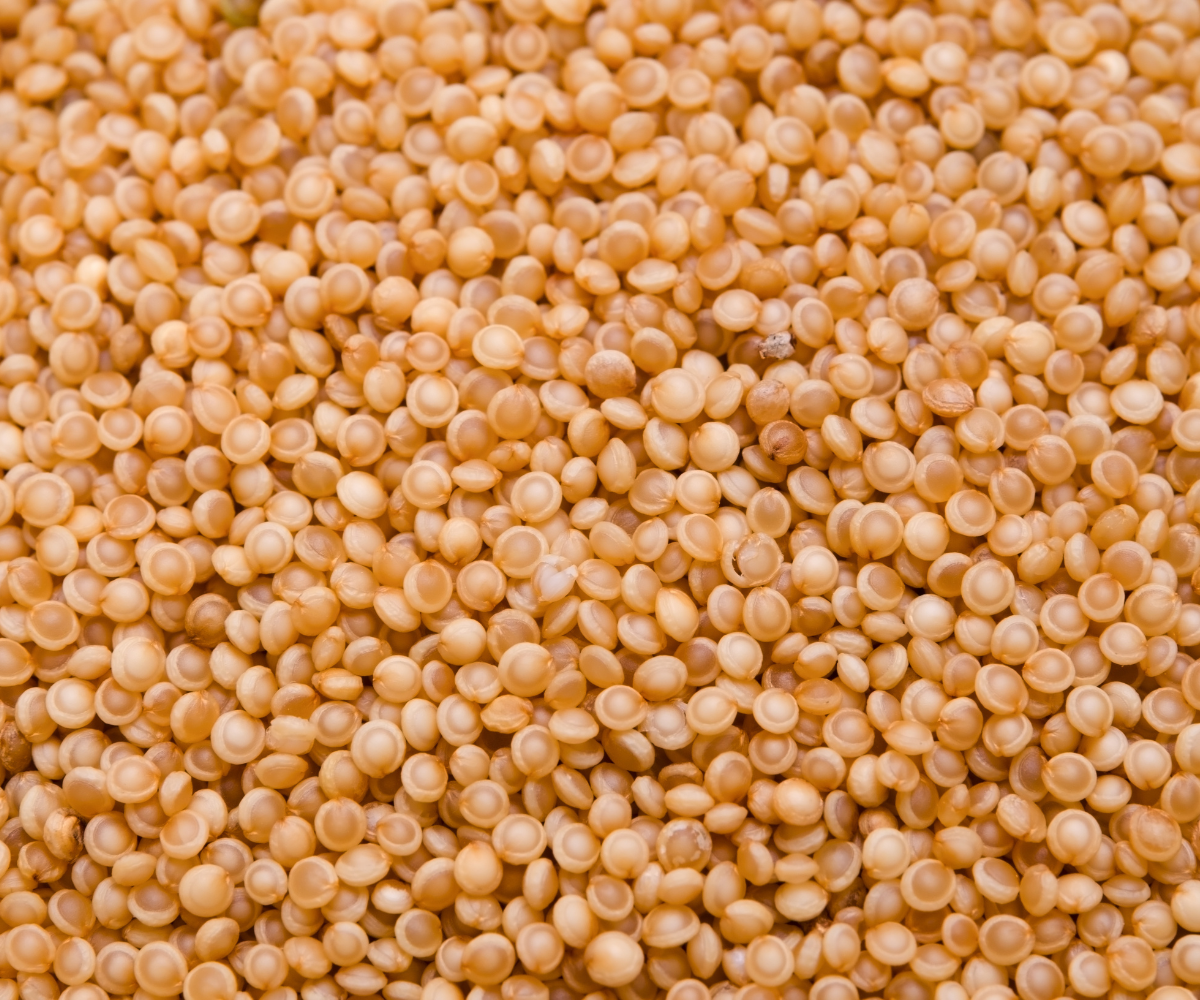
Amaranth is a gluten-free grain that is safe for dogs to consume in moderation. It is a good source of carbohydrates, antioxidants, dietary fiber, protein, and fat. Amaranth is also rich in B vitamins, manganese, phosphorus, magnesium, calcium, selenium, and zinc.
When feeding amaranth to dogs, it is important to keep in mind that the seeds contain calcium oxalates, which can be harmful to dogs if consumed in large amounts. Signs of calcium oxalate consumption include oral pain, vomiting, decreased appetite, increased drooling, and pawing at the mouth. Therefore, it is recommended to introduce amaranth gradually and in small amounts to avoid any digestive issues.
8. Sorghum
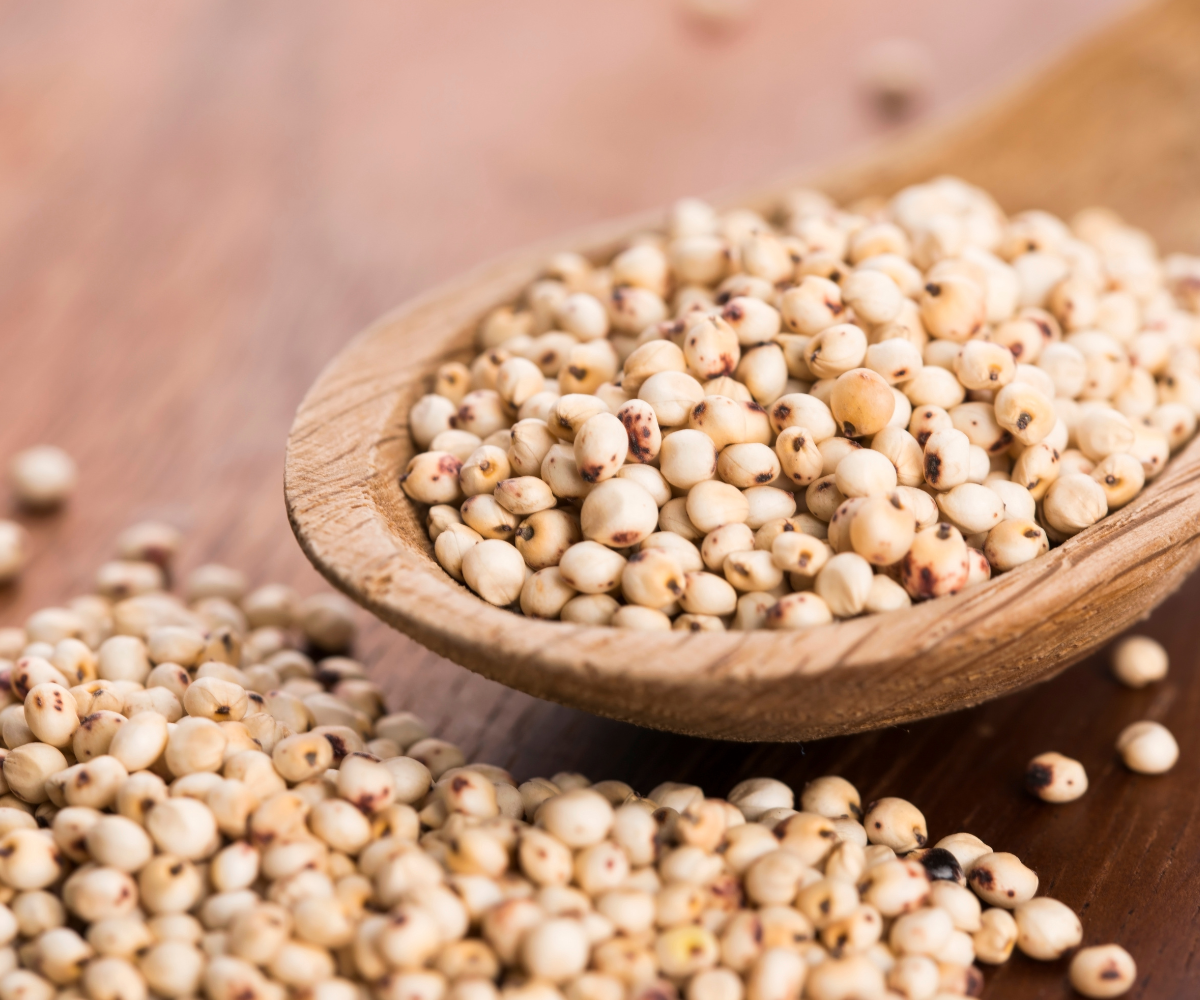
Sorghum is a grain that is gaining popularity in dog food due to its gluten-free nature. It is a good substitute for wheat for dogs that have gluten sensitivity. Sorghum is also non-GMO and is easy to find locally as the United States is one of the top three suppliers.
Sorghum is a nutrient-dense grain that contains high levels of antioxidants, protein, and fiber. It is also rich in vitamins and minerals such as iron, magnesium, and phosphorus. Sorghum is a great source of energy for dogs and can help regulate their blood sugar levels.
9. Rye
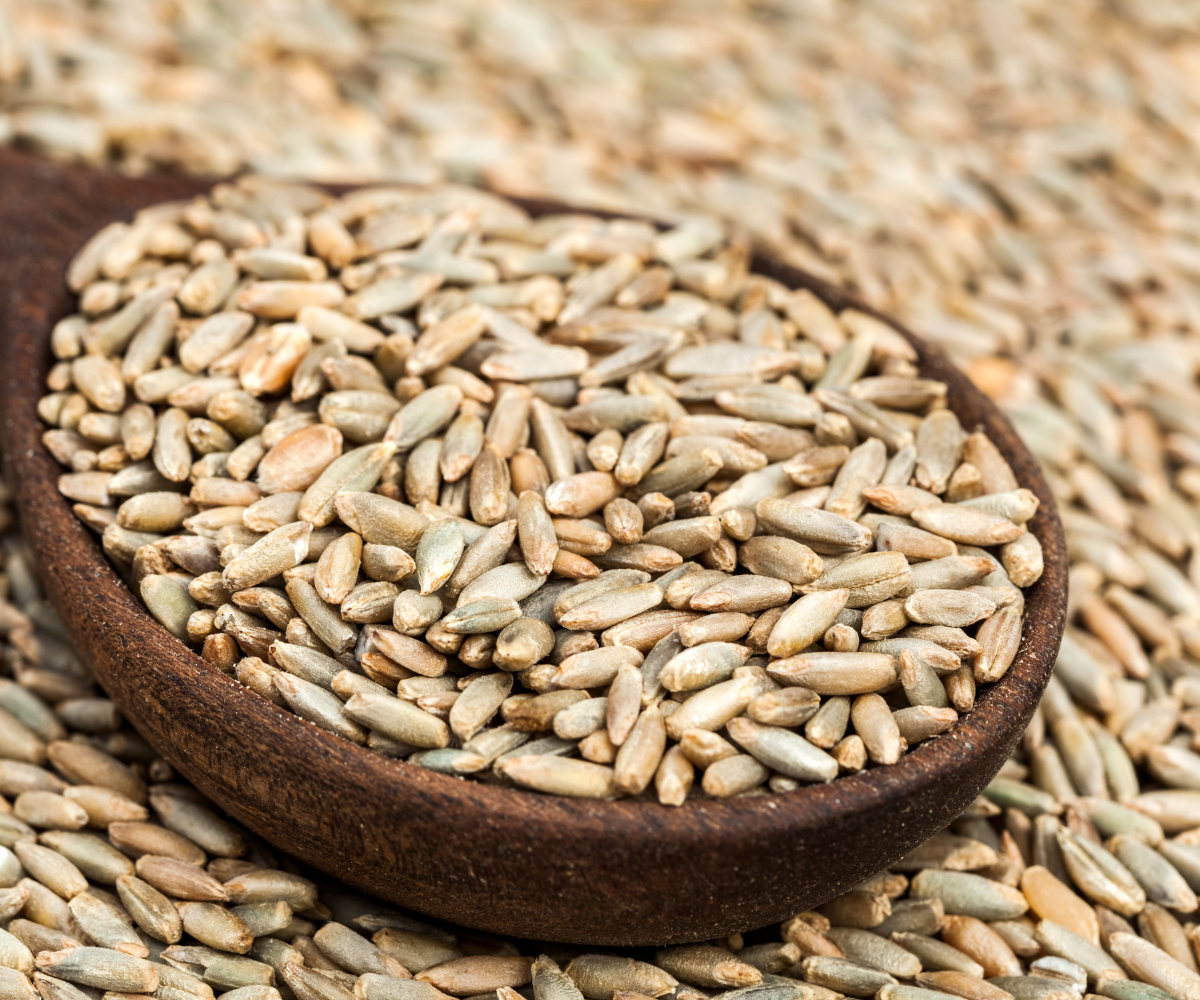
Rye is a grain that is safe for dogs to consume, but it is not suitable for dogs with gluten allergies. Rye contains various nutrients that act as antioxidants and protect against free radicals. Rye is a good source of minerals, B vitamins, and antioxidants that boost dogs' immune system.
Rye is a whole grain that contains fiber, which is beneficial for dogs with digestive issues. It is also low in gluten, making it a good option for dogs with gluten sensitivities. Rye is a good source of protein, which is essential for muscle development and growth.
Note
It is important to note that rye should not be the primary source of nutrition for dogs. It should be used as a supplement to a balanced diet that includes a variety of grains, proteins, and vegetables.
10. Corn
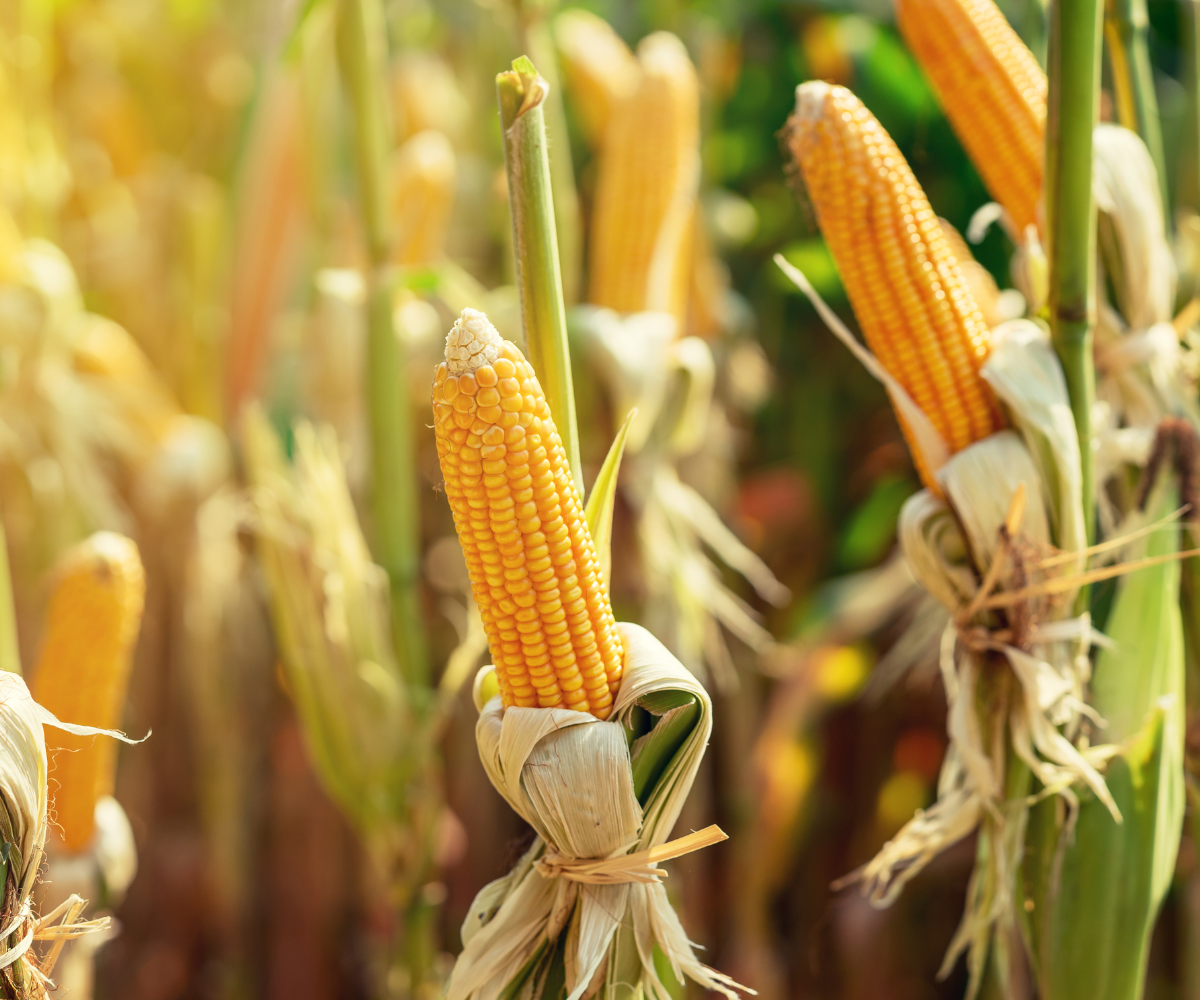
Corn is a cereal grain that is widely used in dog food. It is a rich source of carbohydrates, protein, and essential vitamins and minerals. Corn also provides an easily digestible source of energy for dogs.
Contrary to popular belief, corn is not a common allergen for dogs. In fact, beef, dairy, soy, and wheat are more likely to cause allergies in dogs than corn. However, if your dog has a known allergy to corn, it is best to avoid feeding them corn-based products.
Note
When choosing dog food that contains corn, it is important to look for high-quality sources of corn. Whole corn is a better choice than cornmeal or corn gluten meal, as it contains more nutrients and fiber. It is also important to ensure that the corn is properly cooked and processed to ensure maximum digestibility.
Benefits of Grains in Dog Food
Grains are a common ingredient in many dog foods and can provide a variety of benefits to dogs when included in their diet. Here are some of the benefits of grains in dog food:
- Source of Energy: Grains contain carbohydrates, which are an important source of energy for dogs. Carbohydrates are broken down into glucose, which is used by the body for energy. Dogs that are active or have high energy needs may benefit from the energy provided by grains.
- Source of Fiber: Grains are also a good source of fiber, which can help regulate digestion and promote bowel regularity. Fiber can also help dogs feel full, which can be beneficial for weight management.
- Source of Essential Nutrients: Grains can provide essential nutrients such as vitamins, minerals, and antioxidants. For example, brown rice is a good source of B vitamins, iron, and magnesium, while oats are high in fiber and protein.
- Cost-Effective: Grains are often less expensive than other sources of protein, such as meat. Including grains in dog food can help keep the cost of the food down while still providing a balanced and nutritious diet.
Note
It is important to note that not all dogs can tolerate grains in their diet. Some dogs may have allergies or sensitivities to certain grains, such as wheat or corn.
Preparing Grains for Dogs
When preparing grains for dogs, it is important to follow some guidelines to ensure that they are safe and nutritious. Here are some tips:
1. Cook grains thoroughly
Grains should be cooked thoroughly to make them more digestible for dogs. Undercooked grains can cause digestive problems and may not provide the nutrients that dogs need. Cooking grains also helps to break down any anti-nutrients that may be present in them.
2. Avoid seasoning grains
Dogs do not need seasoning in their food, and some seasonings can be harmful to them. Salt, for example, can cause dehydration and kidney problems in dogs. Garlic and onion can be toxic to dogs in large amounts. Therefore, it is best to avoid seasoning grains for dogs.
3. Mix grains with other ingredients
Grains should not be the only ingredient in a dog's diet. They should be mixed with other ingredients such as meat, vegetables, and fruits to provide a balanced diet. This will ensure that dogs get all the nutrients they need to stay healthy.
4. Choose the right grains
Not all grains are suitable for dogs. Some grains, such as wheat and corn, can cause allergies in dogs. It is best to choose grains that are easy to digest and do not cause allergic reactions. Some of the best grains for dogs include brown rice, oats, quinoa, and barley.
By following these guidelines, dog owners can prepare grains that are safe and nutritious for their furry friends.
The Bottom Line
So there you have it grains can be a healthy addition to a dog's diet when chosen wisely and in moderation. It's important to consider your dog's individual needs and consult with a veterinarian before making any major changes to their diet.
That being said, grains can be a healthy addition to a dog's diet. Grains are a good source of carbohydrates, which provide energy for dogs. They also contain important nutrients such as fiber, vitamins, and minerals.
So go ahead and share some of the grains we mentioned as they are not only beneficial but your dog will also like them.
Frequently Asked Questions
What are the health benefits of including grains in my dog's diet?
Grains are a great source of carbohydrates and fiber, which are essential for a dog's overall health and well-being. Carbohydrates provide energy to dogs, while fiber aids in digestion and helps regulate bowel movements. Grains also contain essential vitamins and minerals that are important for maintaining a healthy immune system.
Which grains are recommended for dogs with sensitive stomachs or allergies?
Dogs with sensitive stomachs or allergies may benefit from grains such as brown rice, quinoa, and barley. These grains are easily digestible and less likely to cause gastrointestinal issues. It is important to consult with a veterinarian before making any dietary changes to ensure that the dog's nutritional needs are being met.
How do certain grains affect a dog's heart health?
Certain grains, such as oatmeal and brown rice, contain antioxidants and other nutrients that can help improve a dog's heart health. These grains can help lower cholesterol levels and reduce the risk of heart disease. However, it is important to remember that a balanced diet and regular exercise are also important factors in maintaining a healthy heart.
Are there specific grains that should be avoided in dog food formulations?
Some grains, such as corn and wheat, may be difficult for dogs to digest and can cause gastrointestinal issues. It is important to choose high-quality grains that are easily digestible and do not contain any harmful additives or preservatives.

Subscribe to Petfluence!
Get updates on the latest posts and more from Petfluence straight to your inbox.